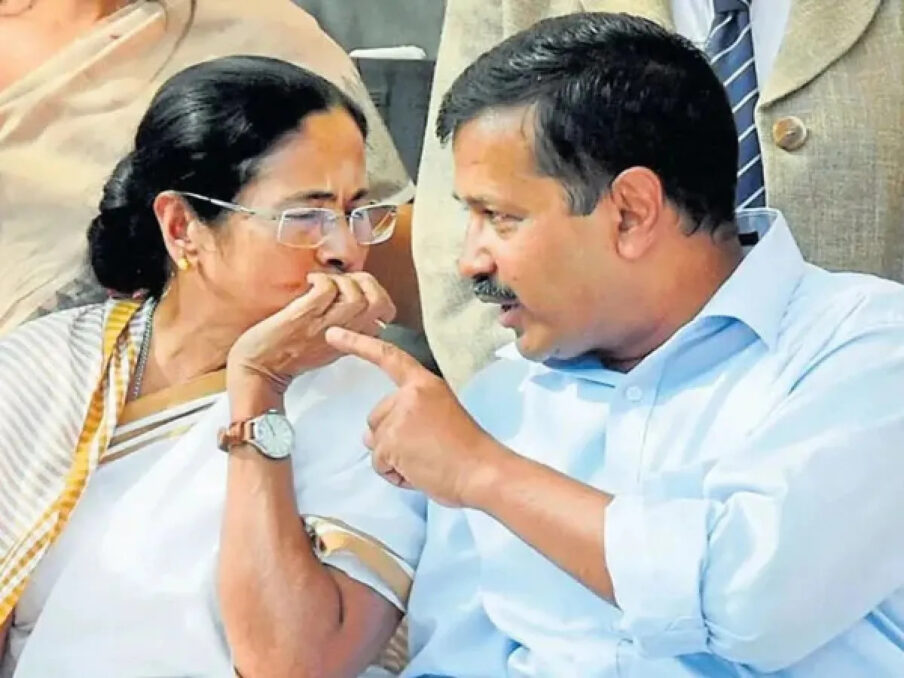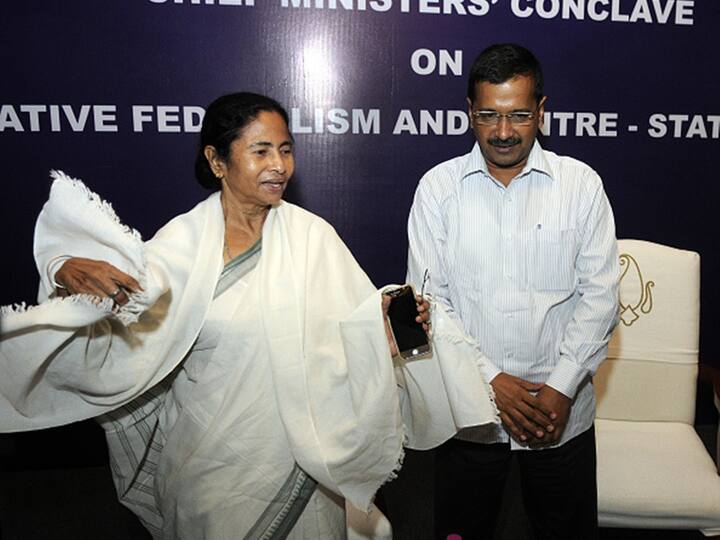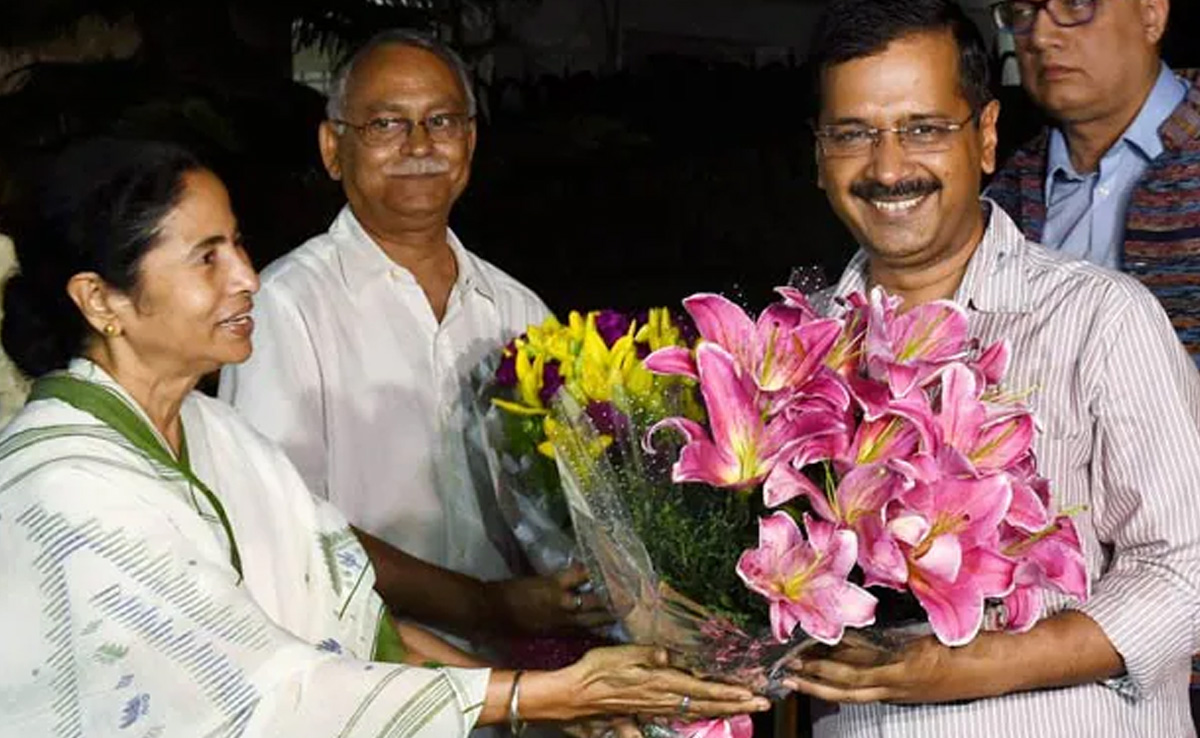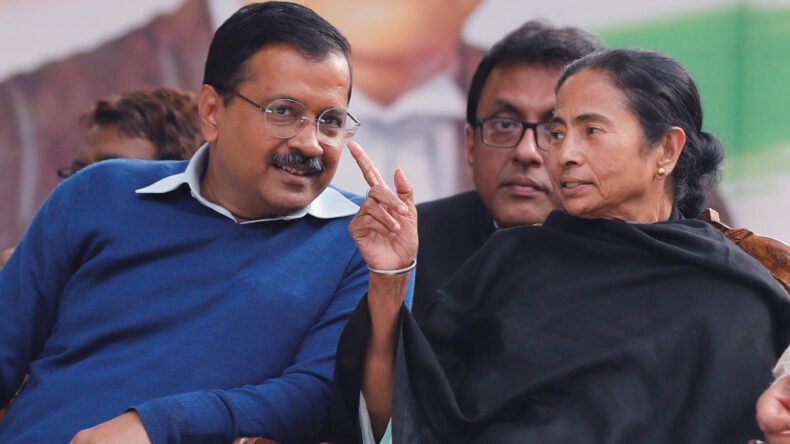Delhi Chief Minister Arvind Kejriwal is scheduled to meet West Bengal Chief Minister Mamata Banerjee at the state secretariat in Kolkata, Nabanna.
The meeting follows a central government executive order that defies a Supreme Court ruling regarding officer transfers and postings in Delhi. Both leaders intend to talk about the order’s ramifications and come up with a plan of action together to deal with the problem. The order has sparked questions about how the federalist principles of government are affected by the federal government’s participation in state operations.
Congress deliberates on alliance with AAP
The main opposition party, the Indian National Congress, has voiced its disapproval of the executive order. But the party hasn’t made up its mind about whether or not to join up with Arvind Kejriwal’s Aam Aadmi Party (AAP).

The Congress chooses to talk with its state units and other like-minded parties before making a final decision, despite agreeing in principle that the order undermines the Supreme Court. The party stresses the significance of respecting the rule of law and averting pointless conflict while working to find a solution to the problem.
Mamata Banerjee’s outreach to opposition leaders
West Bengal Chief Minister Mamata Banerjee has been actively engaging with opposition leaders across the country to form a united front against the Bharatiya Janata Party (BJP)-led central government.

In her efforts to create alliances, she has met with Bihar Chief Minister Nitish Kumar, RJD leader Tejashwi Yadav, Samajwadi Party chief Akhilesh Yadav, and JD(S) leader HD Kumaraswamy. Arvind Kejriwal’s meeting with her is a component of her ongoing efforts to forge a strong opposition front. However, Odisha Chief Minister Naveen Patnaik has decided to stay away from any opposition formation, highlighting the diverse perspectives within the opposition camp.
Kejriwal’s meetings in Mumbai to block the ordinance
In addition to the meeting with Mamata Banerjee, Arvind Kejriwal has scheduled meetings with Shiv Sena (UBT) leader Uddhav Thackeray and Nationalist Congress Party (NCP) Chief Sharad Pawar in Mumbai. These discussions, taking place on May 24 and 25, respectively, will focus on devising a plan to block the ordinance in the Rajya Sabha, the upper house of parliament. The national capital needs effective coordination, and the central government has defended the ordinance by raising issues with dual authority. Kejriwal’s meetings aim to gather support from regional parties to counter the ordinance and protect the autonomy of state governments.

Opposition leaders, including Arvind Kejriwal and Mamata Banerjee, are joining forces to challenge the central government’s executive order on transfers and postings in Delhi. The meeting between Kejriwal and Banerjee in Kolkata will address the implications of the order and establish a collective strategy.
Meanwhile, the Congress party deliberates on aligning with the Aam Aadmi Party while emphasizing the importance of upholding the rule of law. Mamata Banerjee continues her outreach to opposition leaders, while Kejriwal plans meetings in Mumbai to garner support against the ordinance. The central government defends the order, citing the need for efficient governance and coordination in the national capital. The opposition’s united front seeks to protect the principles of federalism and ensure the autonomy of state governments.
As regional parties and opposition figures work to strengthen their positions and challenge the BJP-led central government’s supremacy, the political landscape in India is changing. Both the ruling party and the opposition must win the state elections in 2022, which will take place in Goa, Punjab, Uttarakhand, and Uttar Pradesh. The upcoming elections set the stage for the much-anticipated 2024 general elections, where opposition parties aim to effectively challenge the BJP. Kejriwal and Banerjee’s meeting signals the growing efforts to forge alliances and build a formidable opposition front against the BJP’s influence.












